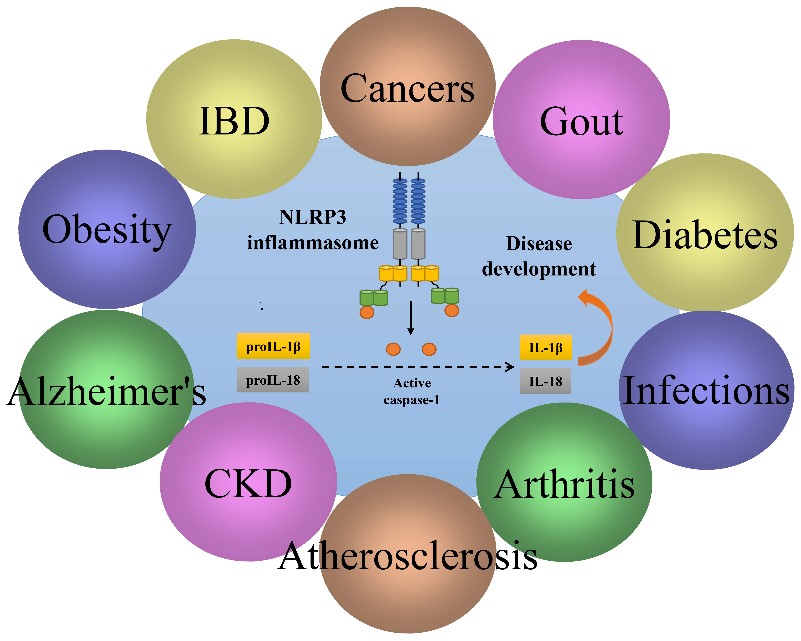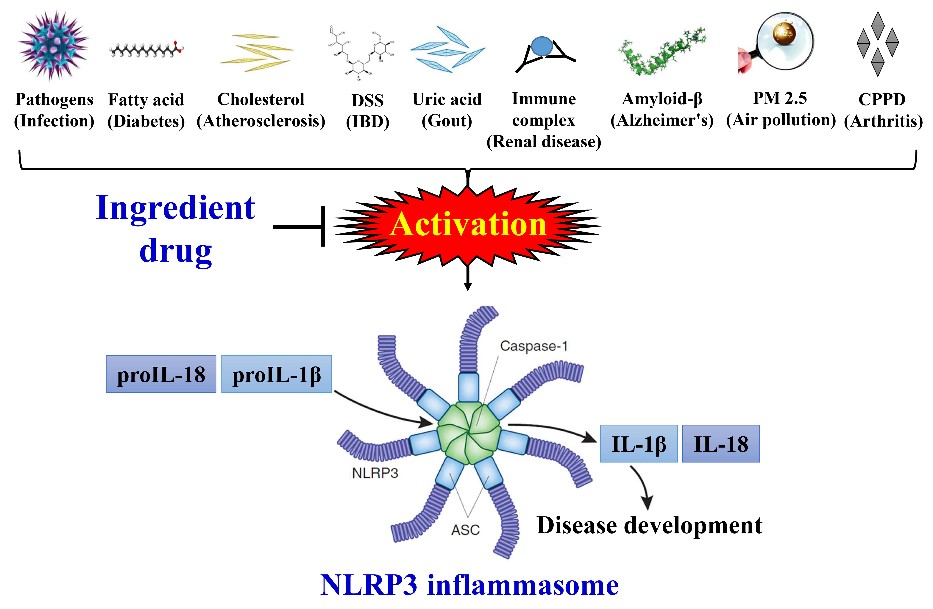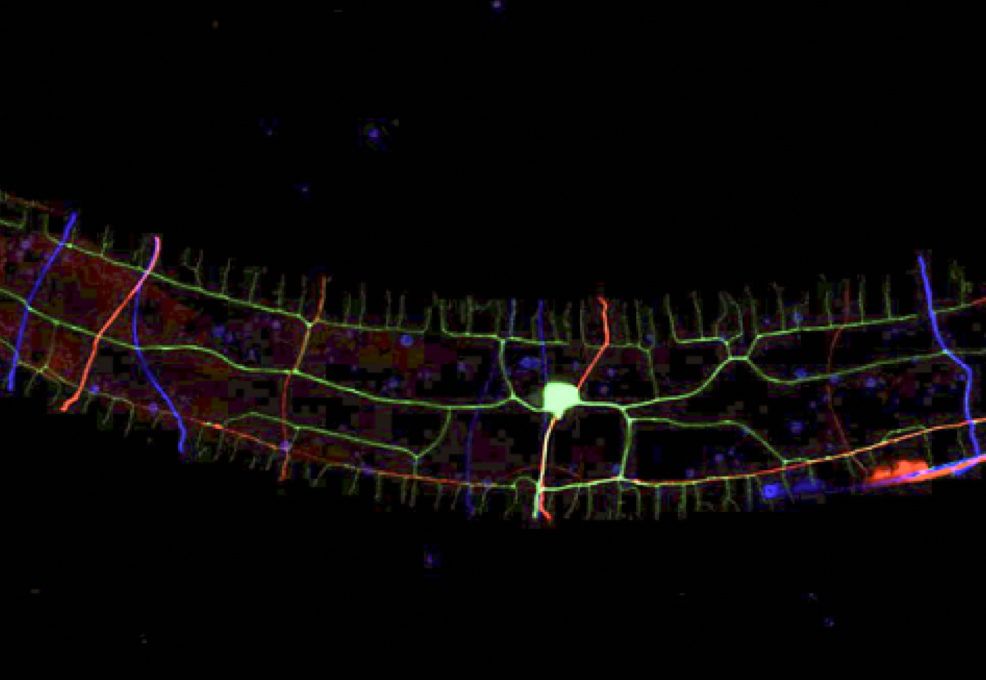Sculpting A Perfect Neuron

Author(s)
Kuo-Feng HuaBiography
Prof. Kuo-Feng Hua is currently a Distinguished Professor of the Department of Biotechnology and Animal Science at the National Ilan University (NIU). Prof. Hua is also a director of the Department of Research and Development at NIU. His research interests are in the fields of inflammatory response and immunology. He has been awarded as a young outstanding scholar by the Ministry of Science and Technology for 6 consecutive years. He currently serves as an editorial board member of Scientific Reports, Frontiers in Immunology and the International Journal of Molecular Sciences. Currently focusing on the research of NLRP3 inflammasome and inflammatory diseases, he is committed to the development of NLRP3 inflammasome inhibitors.
Academy/University/Organization
National Ilan University-
TAGS
-
Share this article
You are free to share this article under the Attribution 4.0 International license
- LIFE SCIENCES
- Text & Image
- July 20,2020
Inflammation is an important defense mechanism of the body against foreign pathogen infections. However, excessive and prolonged inflammation is like a burning flame in the body, hurting our bodies all the time, easily causing many common diseases, such as metabolic syndrome and neurodegenerative diseases. How to effectively reduce the occurrence of chronic inflammation in the body is an important strategy to prevent and treat inflammatory diseases. NLRP3 inflammasome is a newly discovered mechanism of the immune system. Specific risk factors in the body such as cholesterol, fatty acids, uric acid and air pollution PM2.5 cause the activation of the NLRP3 inflammasome. Excessive activation of the NLRP3 inflammasome will promote cardiovascular disease, type II diabetes, cancer, kidney disease, neurodegenerative diseases and other inflammation-related diseases. Understanding the activation mechanism of NLRP3 inflammasome and developing NLRP3 inflammasome inhibitors are important strategies for the development of new drugs. The research team of Professor Kuo-Feng Hua from the Department of Biotechnology and Animal Science, National Ilan University is committed to studying the activation mechanism of NLRP3 inflammasome and its role in the pathogenesis of inflammation-related diseases. Professor Hua established cell- and mouse-based disease-specific platforms for anti-inflammatory drug development. The platforms provide the medically relevant inflammatory condition caused by a particular disease. This is a time-saving and economical platform for academia, food biotechnology and medicine-related industries to develop anti-inflammatory health ingredients or drugs that prevent and improve inflammatory diseases.

Scientists have confirmed that chronic inflammation is like a burning flame in the body that cannot be seen or felt. It is a smoldering process whereby immune cells continuously release inflammatory substances causing chronic damage to the body. The latest research has found that there is a new inflammatory mechanism called the NLRP3 inflammasome, a protein complex containing NLRP3, ASC and caspase-1, which regulates the activity of protease caspase-1 and the maturation and release of pro-inflammatory cytokines IL-1β and IL-18. In addition to being activated by bacterial and viral infections, the NLRP3 inflammasome will be activated by metabolic danger molecules in the body, such as hyperlipidemia, hypercholesterolemia, hyperuricemia, hyperglycemia, and air pollution PM2.5. Abnormal activation of the NLRP3 inflammasome causes the occurrence and worsening of many diseases, including cancer, type II diabetes, cardiovascular disease, kidney disease, neurodegenerative disease, gout, arthritis, inflammatory bowel disease, etc. This partly explains why modern people have increased risk of suffering from many diseases of civilization due to environmental pollution and changes in lifestyle. Avoiding excessive activation of the NLRP3 inflammasome is an effective way to maintain health and to treat related diseases. Therefore, the development of NLRP3 inflammasome inhibitors is an important goal of new drug development. There are currently several pharmaceutical and biotech companies in the world which are developing NLRP3 inflammasome inhibitors to treat inflammatory diseases.

Figure 1. NLRP3 inflammasome and diseases
Traditionally, the experimental model of inflammatory response mostly uses bacterial endotoxin as the stimulus to induce the inflammatory response. Although this model is a commonly used and stable anti-inflammatory drug screening platform, the disadvantage is that the inflammatory response induced by bacterial endotoxin does not represent a specific medically relevant inflammatory condition. The research team of Professor Kuo-Feng Hua from the Department of Biotechnology and Animal Science, National Ilan University is committed to studying the activation mechanism of NLRP3 inflammasome and its role in the pathogenesis of inflammation-related diseases. Professor Hua established cell- and mouse-based disease-specific platforms for anti-inflammatory drug development. The platforms provide the medically relevant inflammatory condition caused by particular diseases, such as kidney disease, type 2 diabetes, arteriosclerosis, gout, inflammatory bowel disease, arthritis, Alzheimer's disease, bacterial infection, PM2.5, etc. This is a stable, time-saving and economical platform for academia, food biotechnology and medicine-related industries to develop anti-inflammatory health ingredients or drugs that prevent and treat inflammatory diseases.

Figure 2. Disease-specific platforms for anti-inflammatory drug development
Using the disease-specific NLRP3 inflammasome platforms, Prof. Hua has published 29 SCI journal papers and obtained 28 invention patents in Taiwan, the United States, the European Union, Germany, Japan, and China. The NLRP3 inflammasome-based disease-specific anti-inflammatory drug screening and testing platforms help food and biomedical industry partners develop bioactive components for the prevention or treatment of inflammatory disease.
STAY CONNECTED. SUBSCRIBE TO OUR NEWSLETTER.
Add your information below to receive daily updates.




